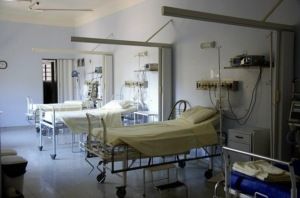News
Denmark ranks low globally in terms of hospital beds per capita
This article is more than 3 years old.
Denmark was ranked in the bottom ten along with Sweden, the UK, Canada, Iceland and New Zealand

There are a limited number of beds in Danish hospitals it seems (photo: Pixabay)
According to a list of global medical conditions published by the British insurance company William Russell, Denmark ranks ninth from the bottom in terms of hospital beds per capita with 2.59 beds per 1,000 people.
The other countries in the bottom ten are Mexico, Costa Rica, Colombia, Chile, Sweden, the UK, Canada, New Zealand and Iceland.
“Having enough hospital beds available is incredibly important as they allow patients to be properly admitted to a hospital ward where they can receive appropriate treatment and observation. They also allow patients to get proper rest following procedures, helping them to make a full and speedy recovery,” the report stated.
READ ALSO: Denmark has two of the world’s top 30 hospitals – ranking
A European trend
Japan, on the other hand, ranks first in the world with 12.84 hospital beds per 1,000 people. And Denmark’s neighbour Germany came in third with 7.91.
However, it is worth noting that the number of beds per capita has been in decline across the EU since 1990.
In Denmark, this figure has dropped from 8.6 beds per 1,000 people in 1975 to 2.59 beds per 1,000 people this year.
Indeed, a ranking from earlier this year had two Danish hospitals in the top 30 in the world – Aarhus University Hospital in 19th and Copenhagen’s Rigshospitalet in 26th.
In East Asia, the trend has gone in the opposite direction. In China, for instance, the number of beds per capita has reached 4.3.










































